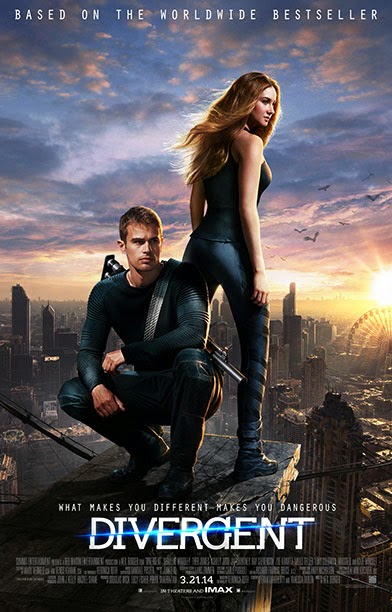56. God's Not Dead
I was lucky enough to catch a sparsely attended screening of this. I've become wary of seeing religious-themed films with large audiences after my experience with "Son of God". It seems that there are always some people who can't get it through their heads that they're not at their church--they're in a movie theater, and it's not appropriate to be shouting "Amen!" or to talk back to the film in general. One woman during "Son of God" felt to the need to pipe up with "That's right!" every other time Jesus opened his mouth. Fortunately, at a Thursday night showing of "God's Not Dead", there was only one other group in the theater, sitting near the back, and they mostly managed to keep quiet.
Overall, "God's Not Dead" is not a great film. It is often preachy, no surprise given its subject matter, and it frequently falls into cliché and relies too much on coincidence. The main storyline is the strongest, about a college freshman tasked with arguing in favor of the existence of God before his philosophy class after refusing his professor's request to write the film's title on a piece of paper. The film would have been better if it had stuck to just the characters in this storyline, but instead the film decided to also tell several other stories (a Muslim girl who has secretly become Christian, a reporter dealing with a cancer diagnosis, and old woman going senile in a nursing home, etc.) all of which weave together, sharing characters. All of these storylines feel artificial. They are shoehorned into the film to get a point across, and never take an unexpected turn.
The main story, while never in doubt as to its destination, manages to manufacture at least a bit of genuine drama. Much of this is thanks to Kevin Sorbo as the philosophy professor, who is the only character in the film with any layers. As a kid I was a fan of him in "Hercules", so it was fun to see him on screen here. The film has nothing new to say about the debate between atheism and religion, but it does often present compelling arguments for both sides (though the film's ultimate stance on the issue is clear). It's never a particularly good film, and it has some huge problems, but it could have been worse.
57. Divergent
"Divergent" is often a clunky exercise in going through the motions of telling its story, but I couldn't help but like it for some massive improvements it made to the book.
First, the problems. Much like "Vampire Academy", the film relies too much on exposition via voiceover at the very beginning. This may be the fastest way to get information across about the world of the film, but giving the audience a lecture is not the best way to get things started. It would have been quite simple to convey everything via dialogue. In fact, I would have jettisoned voiceover narration from the film entirely. I only remember it from the beginning and end of the film, and found it unnecessary in both cases.
The film has no distinct visual style, either. Most of the settings are generic and could be from any number of dystopian or science-fiction films. There's nothing original about it. The plot itself also lacks much of anything to set it apart for much of the film. There are cases where, if an original film, certain characters would likely have been combined, making for fewer, but more developed supporting characters. Being based on a book, however, the film feels the need to feature most of the novel's characters. Given the number of characters and the limited running time, we never get to know them most of them.
Where the film excelled, however, was that it actually told a complete story. My major complaint with the book was that it felt like a prologue with no resolution. While the film's ultimate ending is similar to the book's and leaves the door open for the sequels, many aspects of the ending leading up to this are changed. Kate Winslet's character has much more of a presence in the film than she does in the novel. She is set up as the antagonist early on. She also has a significantly beefed up role in the climax, personally fighting with the lead characters mentally and physically. This allows their defeat of her (for now at least) to feel like a genuine victory, and a good place to end the film. Leaving her character out the action for much of the book's ending made for a climax that meandered to its conclusion. The film has been building to a confrontation with her all along and provides one, making for a satisfying ending. There may not have been anything truly original about "Divergent", but I was quite impressed by its ability to make a decent film out of a dull book.


No comments:
Post a Comment